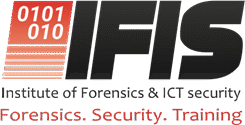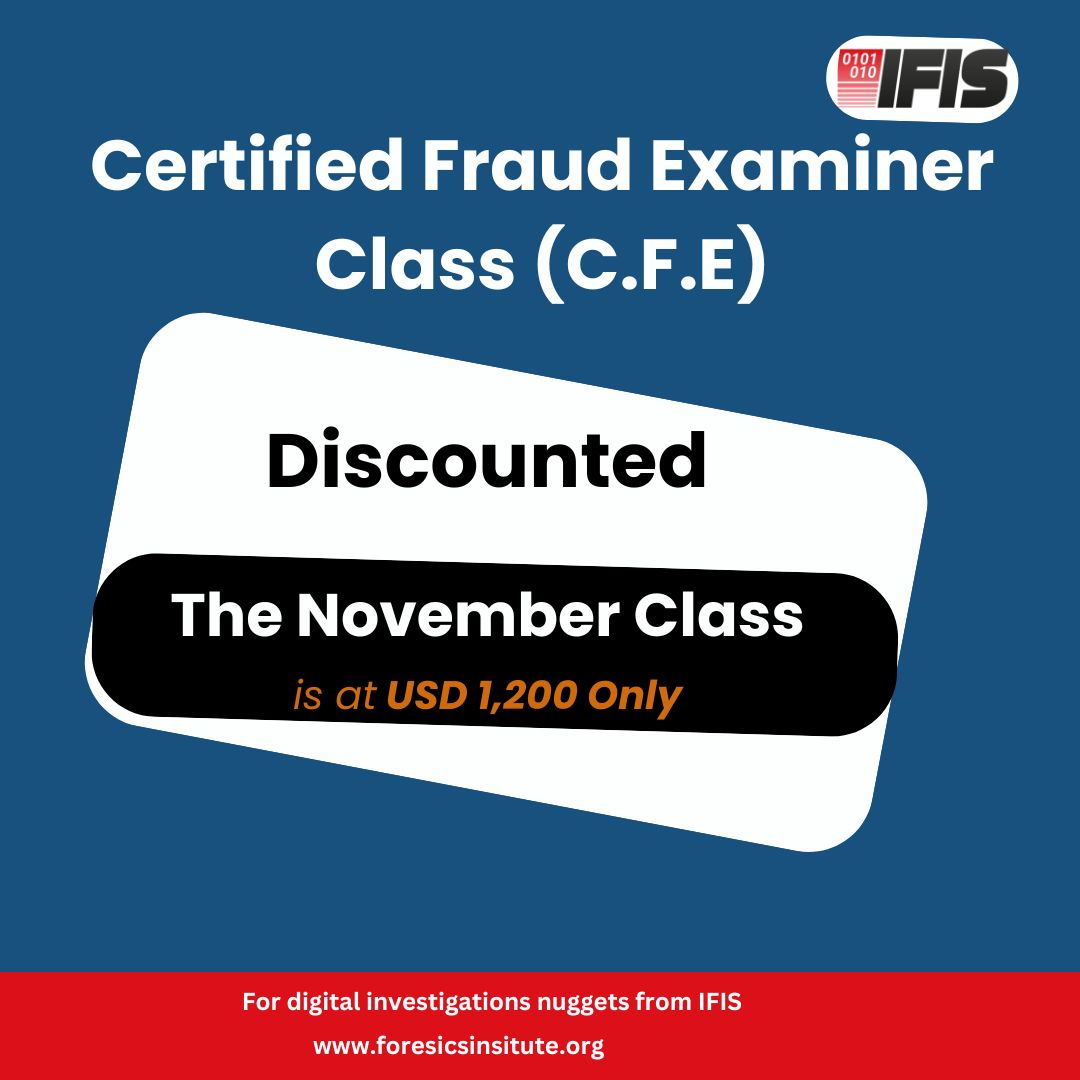If you have ever felt the pulse of a financial irregularity, the sudden spike, the hidden transaction, the silent whistle-blower, then you know this truth: the business of fraud is not simply accounting. It is a battlefield. And the credential that marks you as a qualified warrior in that battle is the Certified Fraud Examiner (CFE), issued by the Association of Certified Fraud Examiners (ACFE).
This November 2025, IFIS is your launchpad. It is time to move from being a good auditor or risk professional to becoming the fraud investigator organisations call when the fire hits. Here is your roadmap. The whys, the hows, and the strategic counsel to get you from today to credential-holding, career-elevated, fraud-fighting.
Why the CFE makes sense and why now?
- Market demand meets prestige. Fraud is not going away. In fact, it is morphing. The ACFE’s vast body of research shows that organisations with CFEs on staff detect fraud faster and incur smaller losses.
- A tangible earnings premium. According to ACFE’s Compensation Guide. CFEs earn, on average, 32% more than their non-certified counterparts. For those with four-year degrees, median compensation among CFEs is approximately US $101,000, and for graduate-degree CFE, it is about US $112,000. In Africa/the Middle East, median CFE compensation was reported at around US $52,000, still significantly higher than many local peers.
- Professional credibility and organisational impact
Holding the CFE signals you are more than an accountant or auditor; you are a trained investigator. CFEs bring “higher fraud detection, professional credibility, career advancement, and enhanced marketability.”
In short, if you are working in internal audit, risk, compliance, or investigation (like many of you reading this), the CFE is the credential that marks the shift from good to elite. IFIS gives you the local gateway to that global benchmark.
The eligibility and exam framework:
Here is a breakdown of how to qualify and prepare, so you know exactly what you are signing up for
Eligibility
- You must be an Associate Member of the ACFE. Use the ACFE “points system”: you need a minimum of 40 points to sit the exam, and 50 points to earn the credential. A bachelor’s degree typically grants ~40 points.
- If you do not have a degree, you may substitute two years of fraud-related professional experience for each year of academic study. You must have at least two years of professional experience in a field related, either directly or indirectly, to fraud detection/deterrence by the time you are certified.
- You must agree to the ACFE Code of Professional Ethics.
Exam structure
Once you are eligible, the path follows:
- Join ACFE.com as an associate member→ 2. Prepare for the CFE exam by buying study materials from the ACFE and also coming to IFIS for study classes→ 3. Apply for the exam → 4. Sit the exam → 5. Get certified.
The exam covers four sections:
- Financial Transactions & Fraud Schemes
- Law
- Investigation
- Fraud Prevention & Deterrence.
Each section is a separate exam (~100 multiple-choice/true-false questions), and you must achieve at least 75% in each to pass.
Timeline and strategy
Given you plan to begin this November 2025 at IFIS, here is a suggested timeline:
- Join ACFE, and begin your preparatory reading.
- November (IFIS class start): Attend IFIS guided sessions, form a study group, start weekly topic deep-dives.
- February-March 2026, Sit each of the four sections (or grouped as allowed by ACFE).
- On passing, gain the official CFE credential, commence leveraging it for career advancement and organisational value.
Career guidance. Where the CFE takes you and how to position it
There are several career paths you can aim for
- Internal Auditor (audit, risk & controls)
- External Auditor (public accounting firms)
- Compliance or Risk Management Professional
- Fraud Investigator / Examiner (private or public sector)
- Loss Prevention or Asset Protection roles
How to use the CFE to stand out
- Leverage your current skills: If you are in internal audit, highlight your fraud-related work to meet eligibility and to show value.
- Show organisational impact: Use metrics, e.g., faster fraud detection, reduced losses. ACFE reports organisations with CFEs detect fraud ~40% sooner and have ~54% smaller losses.
- Network globally, act locally: Join the ACFE community, engage in its job board and webinars, but tailor focus to the East African context (mobile money risk, cyber-fraud, regulatory growth).
- Position for leadership: The credential not only earns more money; it signals readiness for roles with greater responsibility (manager, director). The Compensation Guide shows median compensation increasing significantly with the level of responsibility.
- Market the credential in your region: In Uganda, Kenya, Nigeria, etc., your “CFE” becomes a differentiator in insurance, banking, audit, and compliance hiring. Emphasise your global credentials plus local application.
Five practical steps you must take right now
- Join ACFE today! Activate your membership, and you will start getting benefits and begin accumulating eligibility points.
- Conduct a gap analysis, identify your education points, and fraud experience points. If below 40, plan the experience or education to fill the gap.
- Register for the IFIS November class, commit now, block your study schedule, get your colleagues and manager informed (to support you).
- Design a study plan; e.g., 12 weeks before exam, break each of the four domains into weeks, include mock-tests, flashcards, peer-review sessions.
- Align your current role to your CFE journey; include fraud-related tasks in your performance goals, start logging fraud detection/prevention actions, and build your “case history” (for your resume and for ACFE’s experience requirement).
Why now is the strategic moment for East Africa
- The financial services and audit sectors are increasingly under pressure, with rising regulation, greater digital/mobile-money risk, and stronger governance expectations.
- Organisations are seeking credible fraud–risk specialists. When you hold a globally recognised credential (CFE) and understand local mobile-money, SACCOs, and fintech risk in Uganda, you’re rare.
- By starting in November, you will be ahead of the curve: many professionals delay; being early gives you a first-mover advantage within your organisation or region.
- For the board/internal-audit context you already operate in (you are Head of Internal Audit in Nigeria), the CFE credential extends your influence; you move from “internal auditor” to “fraud-risk leader”, thereby enhancing your value to EXCO and the Board.
Case scenario: How your career might shift
Imagine you, currently Head of Internal Audit at a mid-sized insurance firm in Nigeria, pursue this path:
- November 2025. Join the IFIS class, start CFE study.
- March 2026. Pass all four exam sections, earn CFE.
- Q2 2026. Invite your employer’s risk committee to present a fraud-risk culture module; you design the agenda and deliver it (thanks to your enhanced credentials).
- By Q4 2026. You apply for a role as Chief Risk & Compliance Officer (CRCO) or Head of Fraud & Investigations. Your resume reads: “CFE, ACFE” plus “Led fraud-detection initiative reducing exposures by UGX X”.
With the CFE badge and the real experience combined, you command a salary uplift (Africa/Middle East premium ~30% for CFEs). Your regional credibility grows; you are tapped for assignments across the group, perhaps moving into East African countries.
Your IFIS class – What to expect
When you join the IFIS November 2025 cohort, you are not just participating; you are transforming. We will cover:
- The architecture of fraud, schemes, red flags, and mobile money (East Africa specific)
- The law of fraud, evidence gathering, and legal process (Uganda, East Africa, global)
- Investigation techniques, interviews, data analytics, digital trails
- Prevention & deterrence, building internal-audit-fraud synergy, measuring control effectiveness
- Exam preparation, focus on the four domains, construction of mock tests, study groups, guided review
- Career elevation, how to build your brand, how to integrate the credential into your CV, how to position yourself for your next role
From strategy to execution
You already know that strategy without execution is comedy. So here is my advice. Do not just attend the class; commit to changing your career arc. Do not just tick the box of “professional development”; aim to become the person the board turns to when the red alert hits.
Your three-word action mantra: Investigate. Analyze. Protect.
Start in November 2025. Earn the CFE. Own the fraud-risk narrative in your organisation and region. Transform your career and build the audit-fraud interface future leaders rely on.
Contact us today to enroll.
Copyright IFIS 2025. All rights reserved.





